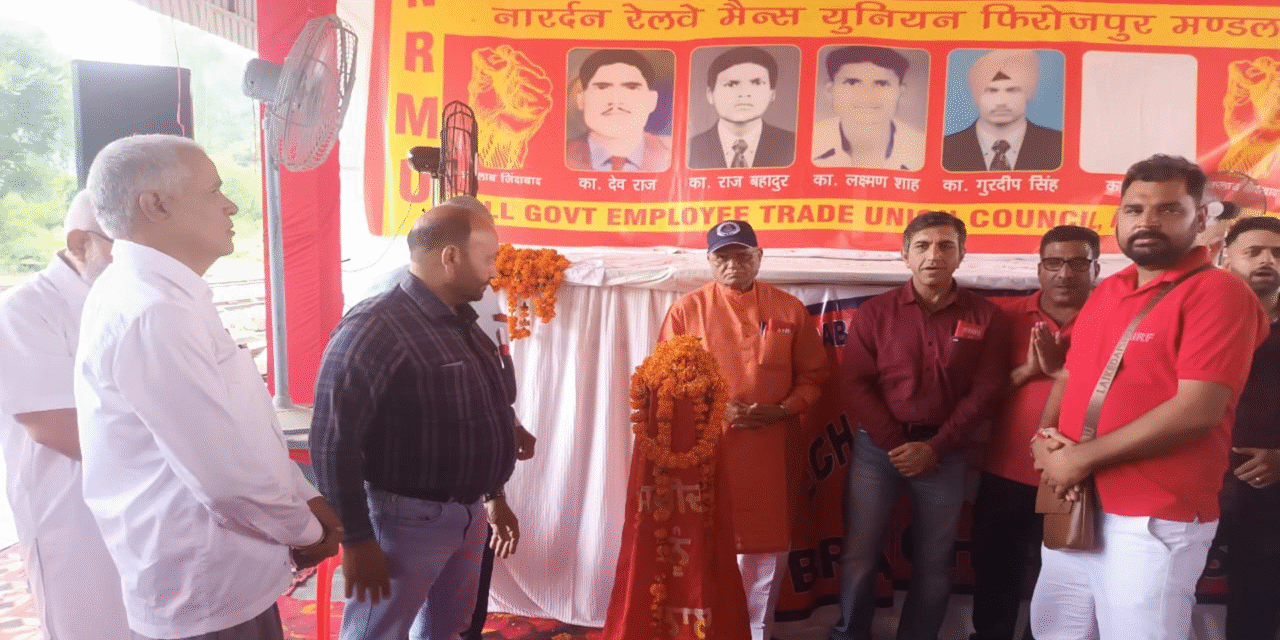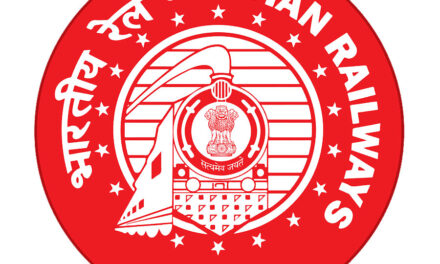New Delhi, 19 September 2025:- The All India Railwaymen’s Federation (AIRF) today observed Martyrs’ Day across all divisions to honour the comrades who laid down their lives during the historic one-day railway strike of 19th September 1968. Floral tributes, two-minute silences, and shop-floor meetings marked the commemorations. Leaders recalled how ordinary railway workers displayed extraordinary courage to defend fair wages and dignity at work, and affirmed that the spirit of 1968 continues to guide present struggles—most immediately, AIRF’s protest against the non-formation of the 8th Central Pay Commission.
The 1968 Strike—Demands and Resolve
On 19 September 1968, railwaymen joined fellow Central Government employees in a nationwide stoppage to demand a need-based minimum wage, full neutralisation of price rise through Dearness Allowance (DA), timely wage revision, and protection from victimisation. The strike was peaceful, disciplined, and democratic, but met with severe repression. Even in the face of arrests and intimidation, workers stood firm, demonstrating that the railway family’s unity is its greatest strength.
Our Martyrs
AIRF solemnly remembers the comrades who made the supreme sacrifice during the 1968 action.
Their names are etched in the collective memory of the movement:
- Com. Paresh Sanyal (Bongaigaon)
- Com. Raman Acharjee (Mariani)
- Com. Kishan Gopal (Bikaner)
- Com. Lakshman Shah (Pathankot)
- Com. Raj Bahadur (Pathankot)
- Com. Debraj (Pathankot)
- Com. Gurdeep Singh (Pathankot)
- Com. Ghama (Pathankot)
- Com. Arjun Singh (New Delhi)
Their courage reminds us that rights are never gifted; they are won and defended by collective struggle.
Achievements and Legacy
While the 1968 strike faced a heavy crackdown, it decisively shifted India’s wage discourse. In its aftermath, government pay policy began to acknowledge the imperative of DA linked to the cost of living, paving the way for fairer adjustments against inflation and more structured wage revisions.
Victimized employees were progressively restored, and the movement secured wider recognition for legitimate collective bargaining. Above all, 1968 bequeathed a living legacy—a confident, organized workforce that knows its unity can bend the arc toward justice.
2025 Observance and Current Protest
On this 57th anniversary, AIRF units held tributes at sheds, depots, yards, and stations nationwide. Resolutions renewed the movement’s founding pledge to protect dignity, safety, and fair compensation for every railway worker. In the same breath, AIRF registered its strong protest against the delay in constituting the 8th Central Pay Commission. Railwaymen demand immediate notification of the Commission with clear Terms of Reference, time-bound recommendations, and a
transparent consultation process with recognized unions.
The Road Ahead
AIRF reiterates that decent wages, inflation protection, and timely revisions are not privileges but essentials that keep the railway service efficient and the nation moving. We honour our martyrs not by words alone but by carrying forward their unfinished task—standing united, disciplined, and determined until every due right is secured. On Martyrs’ Day 2025, the federation calls upon every railway worker to uphold the values of 1968—courage, solidarity, and service—and to strengthen the peaceful, democratic movement for justice, including the immediate formation of the 8th Pay Commission





